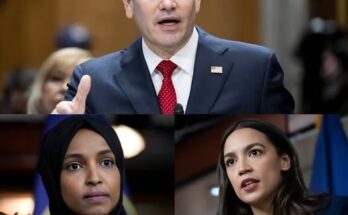The hip-hop star brushes off pressure to abandon endorsements amid escalating rivalry
 Singer Cardi B arrives to Cloud Deli in Washington Heights, Manhattan to promote her new album titled “I am the Drama”. (Sept. 13, 2025) Photo credit: Shutterstock.com / Kevin RC Wilson
Singer Cardi B arrives to Cloud Deli in Washington Heights, Manhattan to promote her new album titled “I am the Drama”. (Sept. 13, 2025) Photo credit: Shutterstock.com / Kevin RC Wilson
The tension between Cardi B and Nicki Minaj has flared up again, this time spilling into corporate boardrooms. During a recent Twitter Spaces session, Cardi B made it crystal clear that attempts to tank her endorsement deals won’t work—not now, not ever.
The drama started when Minaj urged her followers to pressure brands into dropping Cardi B, giving companies just three days to cut ties or face boycotts. Minaj cited past comments from Cardi that she found offensive, turning their long-running feud into a full-blown business battle.
But Cardi B wasn’t having it. Without mentioning Minaj by name, she addressed the boycott campaign head-on during her Twitter Spaces broadcast. Fans had been tagging companies left and right, trying to sabotage her partnerships. Her response? A confident dismissal that revealed just how secure she feels in her commercial value.
Standing Firm Against the Noise
Cardi B told listeners that not only are her current deals safe, but more companies are lining up to work with her. She’s got meetings scheduled for after she gives birth, with brands eager to sponsor her upcoming tour and attach themselves to her name. The message was unmistakable: the boycott isn’t just failing—it’s irrelevant.
What makes this moment particularly striking is Cardi B’s refusal to sound defensive. She wasn’t pleading her case or scrambling to reassure anyone. Instead, she spoke with the ease of someone who’s weathered these storms before and knows exactly where she stands.
More Than Just Confidence
Cardi B framed her resilience in spiritual terms, saying she’s blessed because she looks out for others. She believes that generosity comes back around, and that divine compensation matters more than corporate approval. It’s a perspective that seems to give her genuine peace amid the chaos.
She also called out the manufactured nature of the controversy, labeling it as artificial drama cooked up by overzealous fans rather than anything substantive. The boycott campaign, in her view, is just noise—what she dismissed as performative outrage designed for social media engagement rather than real concern.
This raises an interesting point about modern celebrity conflicts. How much of what we see online reflects actual beef versus content creation? Cardi B clearly thinks a lot of it is theater, and she’s not interested in playing along.
The Business Reality
Here’s the thing: Cardi B understands her market value with remarkable clarity. Her endorsement portfolio stretches across fashion, beauty and beverages. Brands don’t partner with her out of charity—they do it because she moves products and commands attention.
The boycott attempt might have hoped to spook corporations into reconsidering their associations. Instead, it seems to have reinforced what the industry already knew: Cardi B is resilient, relevant and exceptionally good at staying in the conversation. Those are exactly the qualities that make someone commercially valuable.
She’s been facing cancellation attempts since 2019, she noted, and none of them have stuck. That track record speaks louder than any boycott threat.
When Female Artists Get Pitted Against Each Other
The persistent framing of Cardi B and Nicki Minaj as inevitable enemies deserves scrutiny. Male rappers collaborate all the time despite competitive relationships, but women in hip-hop often get reduced to a binary: allies or adversaries, with no room for anything in between.
This dynamic doesn’t serve either artist well. Both have built remarkable careers through distinct styles and smart business moves. The insistence on treating their success as mutually exclusive diminishes what they’ve each accomplished individually and reinforces tired stereotypes about women not being able to coexist in shared spaces.
What Happens Next
Where this goes from here remains unclear. There could be musical responses—diss tracks, subtle references in lyrics, more public statements. Or both artists might let their work speak for itself, allowing their respective successes to serve as the ultimate response.
For now, Cardi B has drawn her line. External pressure won’t dictate her business relationships or dim her prospects. Her defiance reflects something bigger than one feud: it’s about agency, about refusing to let others write your story.
The hip-hop world keeps changing, but talent and tenacity still determine who lasts. Both Cardi B and Nicki Minaj have those qualities in spades, which means their influence isn’t going anywhere regardless of personal tensions. The real question isn’t whether they’ll stay relevant—it’s how they’ll choose to use that relevance moving forward, and whether the industry and fans will finally stop insisting they can’t both thrive.


